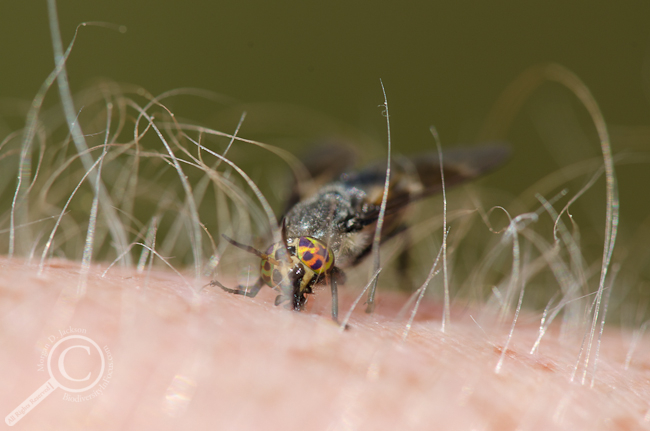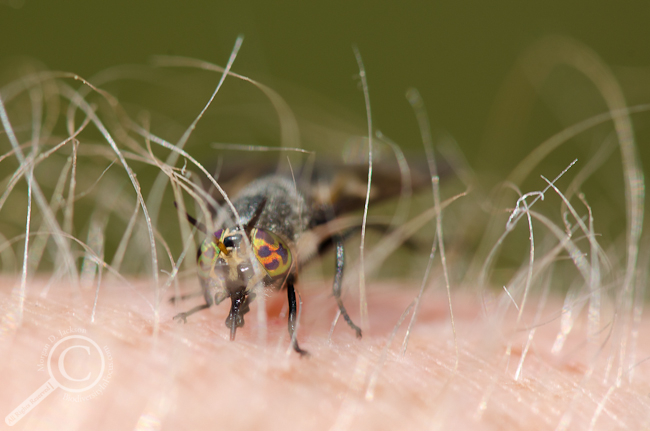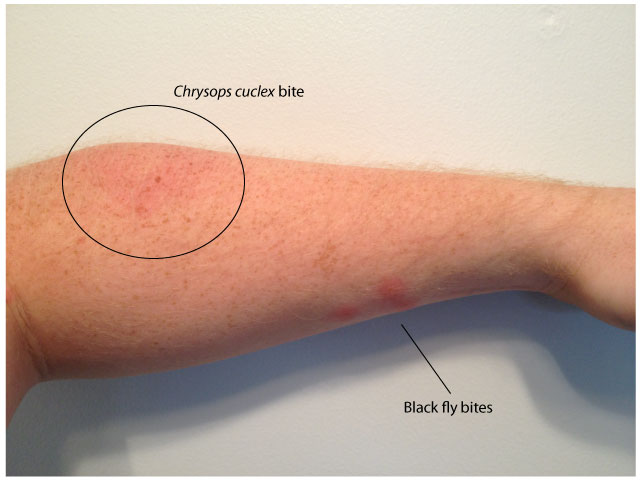I went down to an inland dune habitat in Southwestern Ontario yesterday with my lab mates to do some collecting. For the most part insects were pretty scarce to come by, except for the biting flies, which were out in abundance.
Thankfully this was the only deer fly (family Tabanidae) that I had the misfortune of waiting on. I initially went to brush it off, but when I noticed it was oriented in such a way that I could snag a photo, I bit the bullet and allowed it to continue while I contorted my camera around to document another happy customer.
Unlike mosquitoes, who’s mouthparts act like a hypodermic needle to stealthily imbibe your blood, deer flies cut and slice the skin, causing bloodshed which they then lap up. Much like a skinned knee is usually more painful than the prick of a phlebotomist, a bite from a deer fly will rarely go unnoticed, and in this case, make it all the more difficult to photograph whilst squirming!
——————–
If you’re curious, here’s a shot of my arm this morning, about 18 hours after the bite occurred. There was a swollen welt about 1″ in diameter that was quite firm and which occasionally had a strange tingling sensation, yet wasn’t itchy. Things seem to be back to normal 36 hours after the bite, with only a small firm area directly below the bite.
——————–
If you’ve had a run in with a deer fly before and are curious what species it might have been, check out CJAI #8 (The Chrysopinae of Canada East of the Rocky Mountains) or Tesky’s hand book to the Tabanidae of Canada.



